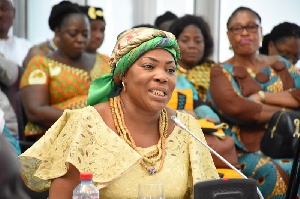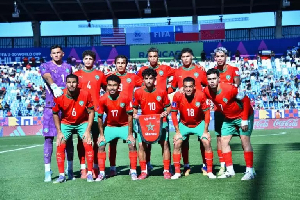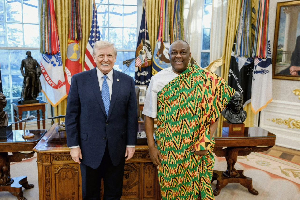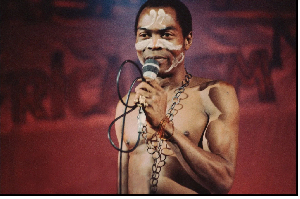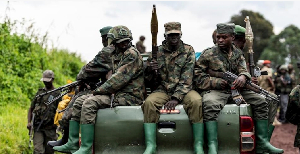A five-day Circular Economy and Textile Exchange workshop to address textile waste challenges in Ghana and across Africa has ended in Accra with calls for sustainable textile management.
Organised by the Accra Metropolitan Assembly (AMA) in partnership with Africa-Europe Mayors’ Dialogue, the event aimed to build collaboration and exchange practical knowledge on sustainable textile management, recycling, and innovative circular business models.
The event, which began on Tuesday, October 6, brought together over 100 participants, including policymakers, industry leaders, and circular economy advocates from cities like London, Durban, and Freetown, to explore sustainable textile management practices and foster cross-border collaboration.
The Mayor of Accra, Elizabeth Sackey, in a welcome address read by Engineer Solomon Noi, Director of the Waste Management Department at the AMA, highlighted the challenges Accra faces in managing secondhand clothing waste, stating that while much of the used clothing is discarded, the city lacks adequate resources to process and repurpose this material.
She noted that Accra’s collaboration with international cities aimed to adopt a circular model for waste management and outlined plans to sort it well and collect textiles separately while learning the best practices and innovations of partner cities in the Global North.
This collaboration, according to her, could help Accra establish processes like mechanical recycling and upcycling, transforming waste into economic opportunities, adding that by doing so, the city's informal sector, which makes up 80% of Accra’s economy, could benefit from new jobs related to recycling textiles for use in construction materials and other industries.
The Communications and Production Specialist in charge of external engagement at the Africa-Europe Mayors Dialogue, Kenji Maghoma mentioned that the Africa-Europe Mayors’ Dialogue was a platform for African and European Mayors to collaborate to deliver innovative and practical solutions within and between their cities adding that the partnership of equals involved over 20 cities, including Accra and Durban.
According to her, the platform hosted by the global think tank ODI was initiated by the Mayors of Freetown and Milan, Mayor Aki-Sawyerr and Mayor Sala, respectively, in 2020.
She stated that the exchange was part of ongoing efforts to promote city diplomacy across continents, bringing together policymakers, city actors, SMEs, designers, makers, and community groups.
She said at the technical cooperation level, the exchange would focus on two main areas: waste management and recycling techniques, and business models and innovation.
Kenji Maghoma further mentioned that at the policy and advocacy level, the objective was to assess how city diplomacy and cooperation could support policy change and reform
The founder of The Or Foundation, Liz Ricketts in a presentation, described the overwhelming volume of textile waste in Kantamanto market, stating that it was not just a local issue but a global crisis resulting from excessive production and consumerism in the Global North.
She pointed out that Kantamanto Market receives approximately 15 million garments weekly, which strains local resources and leaves communities with the burden of managing waste.
Liz Ricketts highlighted the problematic nature of defining "waste" in international contexts, questioning whether unsold or unused clothing should be categorised as waste.
She argued that the high volume of clothing exports labelled as “charity” or “recycling” often masks the reality that much of this material has little to no value upon arrival in Ghana, adding to environmental degradation and financial strain for local retailers.
She used the opportunity to call for global accountability, advocating that Extended Producer Responsibility (EPR) policies should support communities impacted by textile waste, such as Kantamanto adding that the EPR fees need to be aligned with actual waste management costs, as this would create a more equitable system and help reduce the environmental and social impact of discarded clothing.
Circular Economy Advisor at ReLondon, Rachel Singer shared London's approach to sustainable textile practices and reiterated its commitment to becoming a low-carbon, circular fashion hub.
She noted that London’s Environment Strategy includes ambitious goals to eliminate biodegradable and recyclable waste from landfills by 2026 and to raise recycling rates to 65% by 2030, adding that this effort was supported by the One World Living program, which targets a two-thirds reduction in consumption-based emissions across key material streams by 2030.
Rachel Singer detailed ReLondon's role in transforming London’s relationship with materials, stressing that the organisation was dedicated to equipping local authorities, empowering small- and medium-sized businesses, and encouraging Londoners to embrace new consumption models.
"Our mission is to embed circular practices in every facet of life," she noted, adding that the city’s circular economy initiatives are essential to reducing emissions related to material consumption.
She disclosed that in 2019, London consumed 154,600 metric tonnes of clothing and discarded 142,700 metric tonnes—equivalent to 48 new items and 44 discarded items per person.
The workshop included site visits to Kantamanto Market and presentations by sustainable fashion designers, which aimed to strengthen policy advocacy for circular practices.
Regional News of Monday, 14 October 2024
Source: Accra Metropolitan Assembly
Five-day Circular Economy and Textile workshop ends in Accra
Opinions


